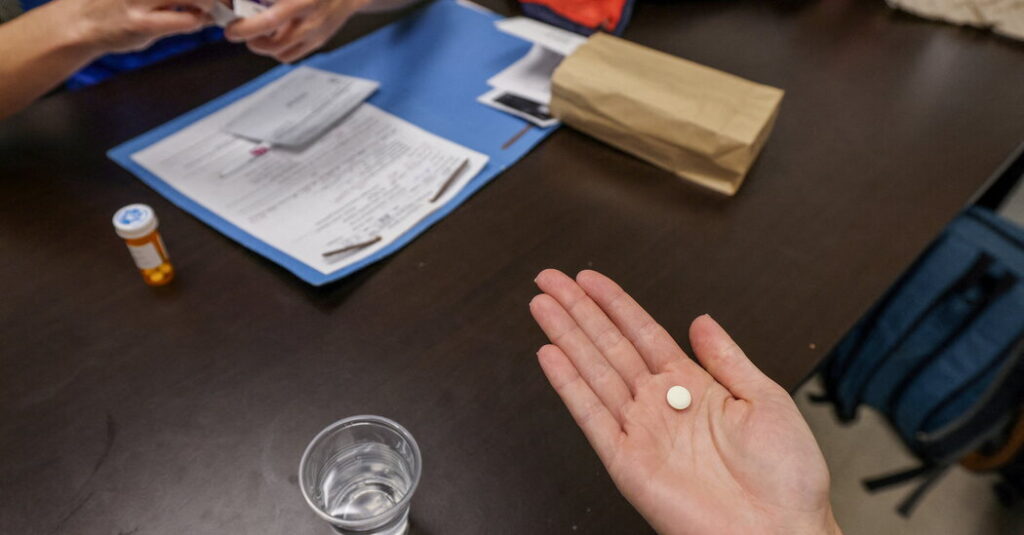[ad_1]
Since October 2020, Just the Pill has provided more than 2,500 telemedicine consultations with doctors to supply abortion pills by mail to patients in Colorado, Minnesota, Montana and Wyoming. Within a few days, it plans to deploy in Colorado the first of what will become “a fleet of mobile clinics” to park along state borders, providing consultations for medication abortions and dispensing pills, said Dr. Julie Amaon, the organization’s medical director.
Called “Abortion Delivered,” the clinic-on-wheels program, which will also provide surgical abortions for patients who prefer it or are too far along in pregnancy for a medication abortion, is designed to reach patients from nearby states like Texas, Oklahoma and South Dakota that quickly outlawed abortion after the court decision, as well as other states like Utah that are expected to ban or sharply restrict abortion.
“By operating on state borders, we will reduce travel burdens for patients in states with bans or severe limits,” Dr. Amaon said. “And by moving beyond a traditional brick-and-mortar clinic, our mobile clinics can quickly adapt to the courts, state legislatures, and the markets, going wherever the need is.”
From Opinion: The End of Roe v. Wade
Commentary by Times Opinion writers and columnists on the Supreme Court’s decision to end the constitutional right to abortion.
- David N. Hackney, maternal-fetal medicine specialist: The end of Roe “is a tragedy for our patients, many of whom will suffer and some of whom could very well die.”
- Mara Gay: “Sex is fun. For the puritanical tyrants seeking to control our bodies, that’s a problem.”
- Elizabeth Spiers: “The notion that rich women will be fine, regardless of what the law says, is probably comforting to some. But it is simply not true.”
- Katherine Stewart, writer: “Breaking American democracy isn’t an unintended side effect of Christian nationalism. It is the point of the project.”
Similar medication abortion providers are also planning for an influx. Hey Jane, an organization that has served nearly 10,000 patients in California, Colorado, Illinois, New Mexico, New York and Washington, plans to expand to more states. “We’ve ramped up our team to accommodate this significant increase in demand,” said its chief executive, Kiki Freedman.
Anti-abortion groups are trying to counter the rise in interest in medication abortion by claiming it is unsafe, calling it “chemical abortion.” James Studnicki, vice president of data analytics at Charlotte Lozier Institute, an arm of Susan B. Anthony Pro-Life America, said on Friday that “the safety of the abortion pill is greatly exaggerated,” and called the rise in medication abortion “a serious public health threat.”
[ad_2]

